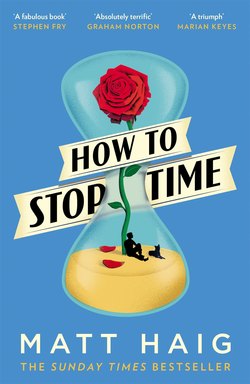Читать книгу How to Stop Time - Matt Haig - Страница 12
На сайте Литреса книга снята с продажи.
London, now
ОглавлениеI still feel weak. My head throbs. I walk. I think it will help ease the memories of Chapel Street. I walk to the antidote: Hackney. Well Lane. Now called Well Street. The place where Rose and I first lived together, before the years of misery and separation and plague took over. The cottages and stables and barns and pond and fruit orchards are long gone. I know it isn’t healthy to walk around no longer familiar streets, looking for memories that have been paved over, but I need to see it.
I keep walking along. These must be among the busiest streets in Hackney. Buses and shoppers bustle past. I pass a phone shop and a pawnbroker’s and a sandwich bar. And then I see it, on the other side of the road – the spot where we must have lived.
It is now a windowless red-brick building, with a blue and white sign outside. HACKNEY PET RESCUE SERVICES. It is depressing to feel your life erased. The kind of depressing that requires you to rest against a wall near the cash machine, causing you to apologise to the old man guarding his PIN number, explaining that you don’t want to rob him, and deal with his stare as if he still isn’t sure.
I watch a man with a Staffordshire terrier leave the building. Then I realise what I can do. How I can make a little peace with my past.
I can cross the street and go inside.
Every other dog in the place is barking. But this one is just lying in its undersized basket. It is a strange grey creature with sapphire eyes. The dog, I feel, is too dignified for such modern garishness, a wolf out of its time. I related.
The dog has an untouched chew toy beside him. A bright yellow rubber bone.
‘What breed is it?’ I ask the dog shelter volunteer (name badge ‘Lou’). She scratches the eczema on her arm.
‘He’s an Akita,’ she says. ‘Japanese. Pretty rare. Bit like a husky, isn’t he?’
‘Yes.’
This is the spot, as far as I can tell. This kennel, this one with this beautiful, sad-looking dog inside, is where the room used to be. The room we slept in.
‘How old is he?’ I ask Lou.
‘Pretty old. He’s eleven. That’s one of the reasons it’s been hard to find a home for him.’
‘And why is he in here?’
‘He was picked up. He was living on a balcony to a flat. Chained up. Horrid state. Look.’ She points at a red-brown scar on his thigh where there is no hair growing.
‘A cigarette burn.’
‘He looks so depressed.’
‘Yep.’
‘What’s his name?’
‘We never knew his name. We call him Abraham.’
‘Why?’
‘The tower block where we found him was called Lincoln Tower.’
‘Ah,’ I said. ‘Abraham. It suits him.’
Abraham stands up. Comes over to me and stares up with those light blue eyes, as if trying to tell me something. I hadn’t intended to get a dog. That hadn’t been part of today’s plan. And yet, here I am, saying, ‘This is the one. I’d like to take him home.’
Lou looks at me in surprise. ‘You don’t want to see the rest?’
‘No.’
I notice the blotched skin on Lou’s arm – crimson and sore – and in my mind it was that cold winter’s day, in Dr Hutchinson’s waiting room, amid the other patients, as I nervously waited for a diagnosis.
